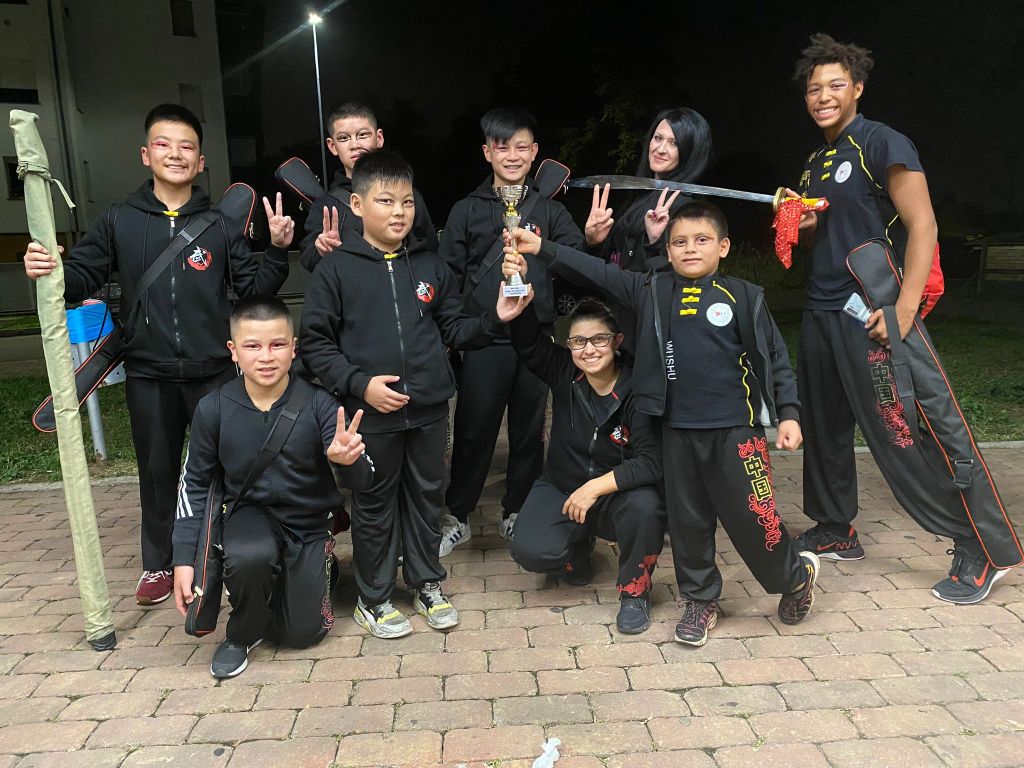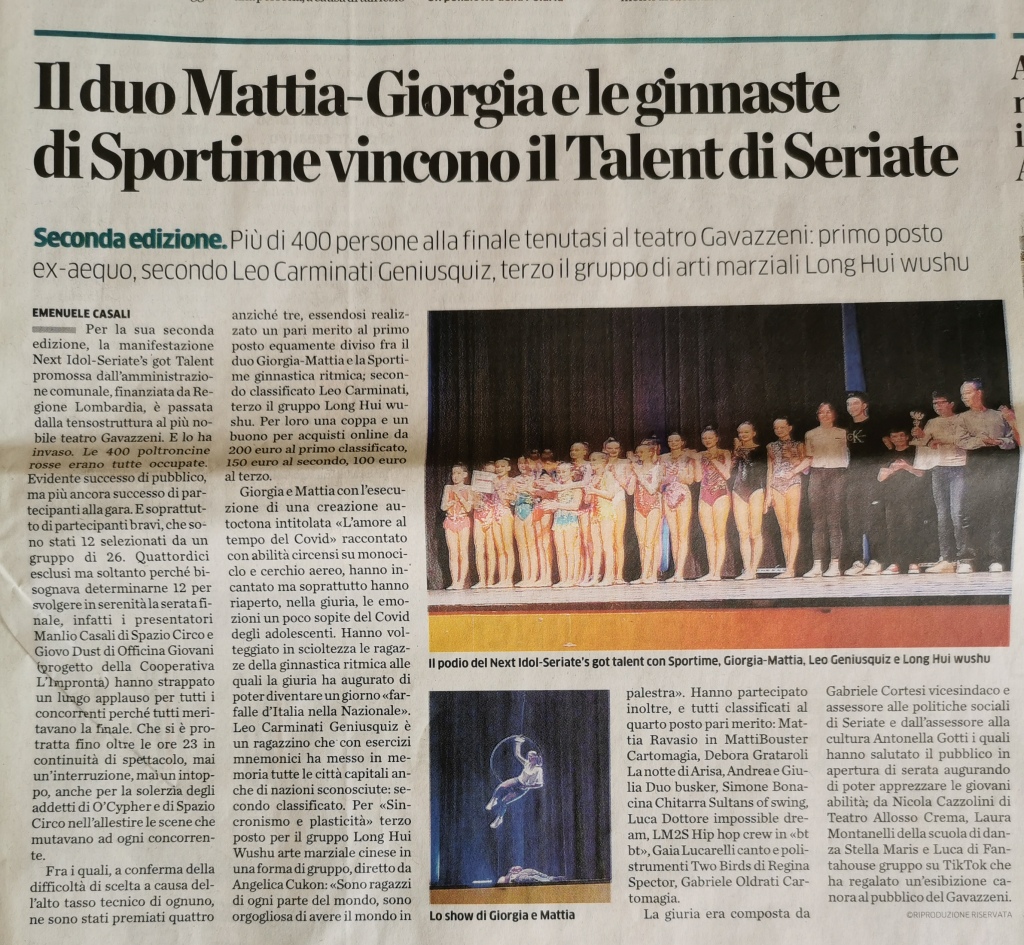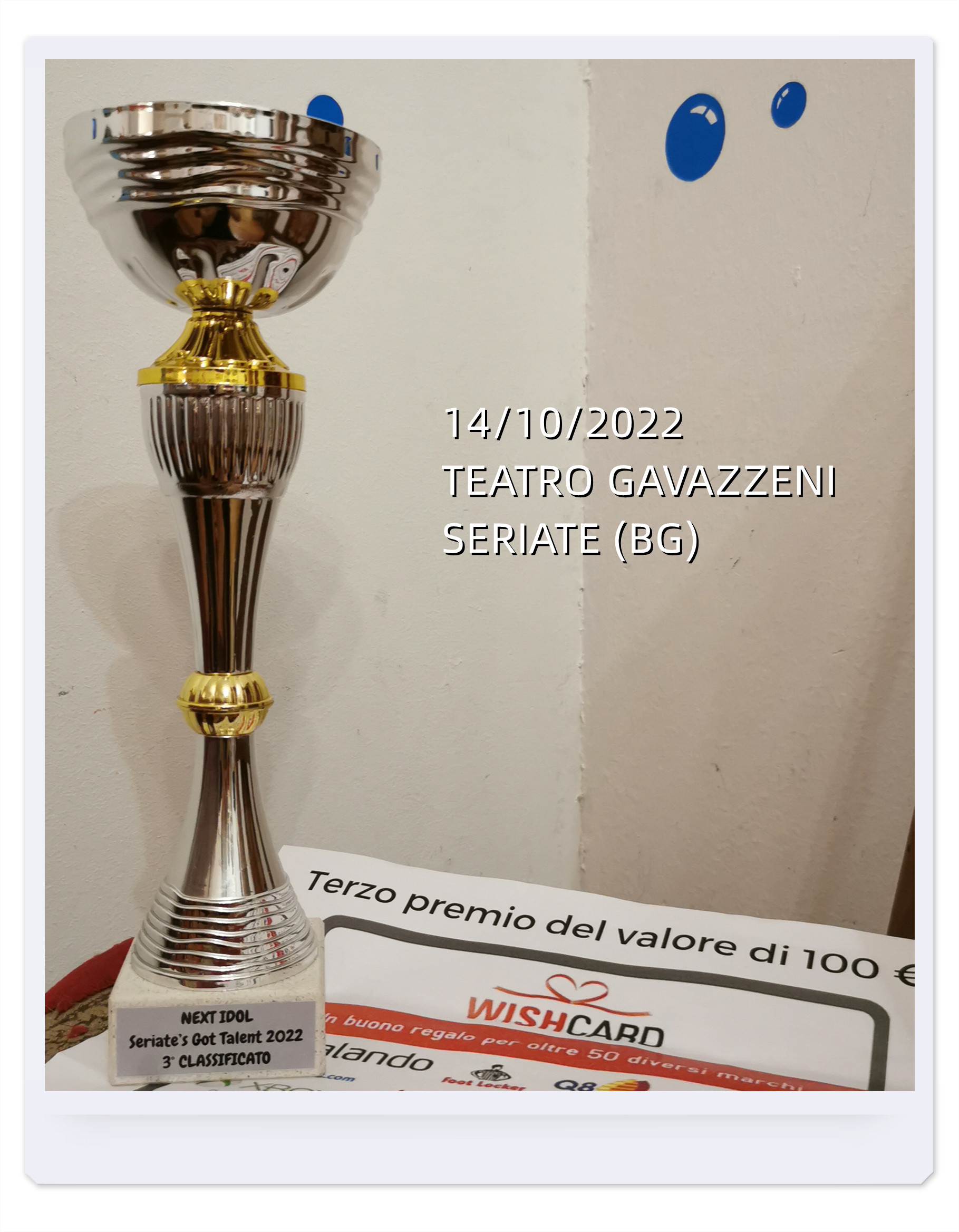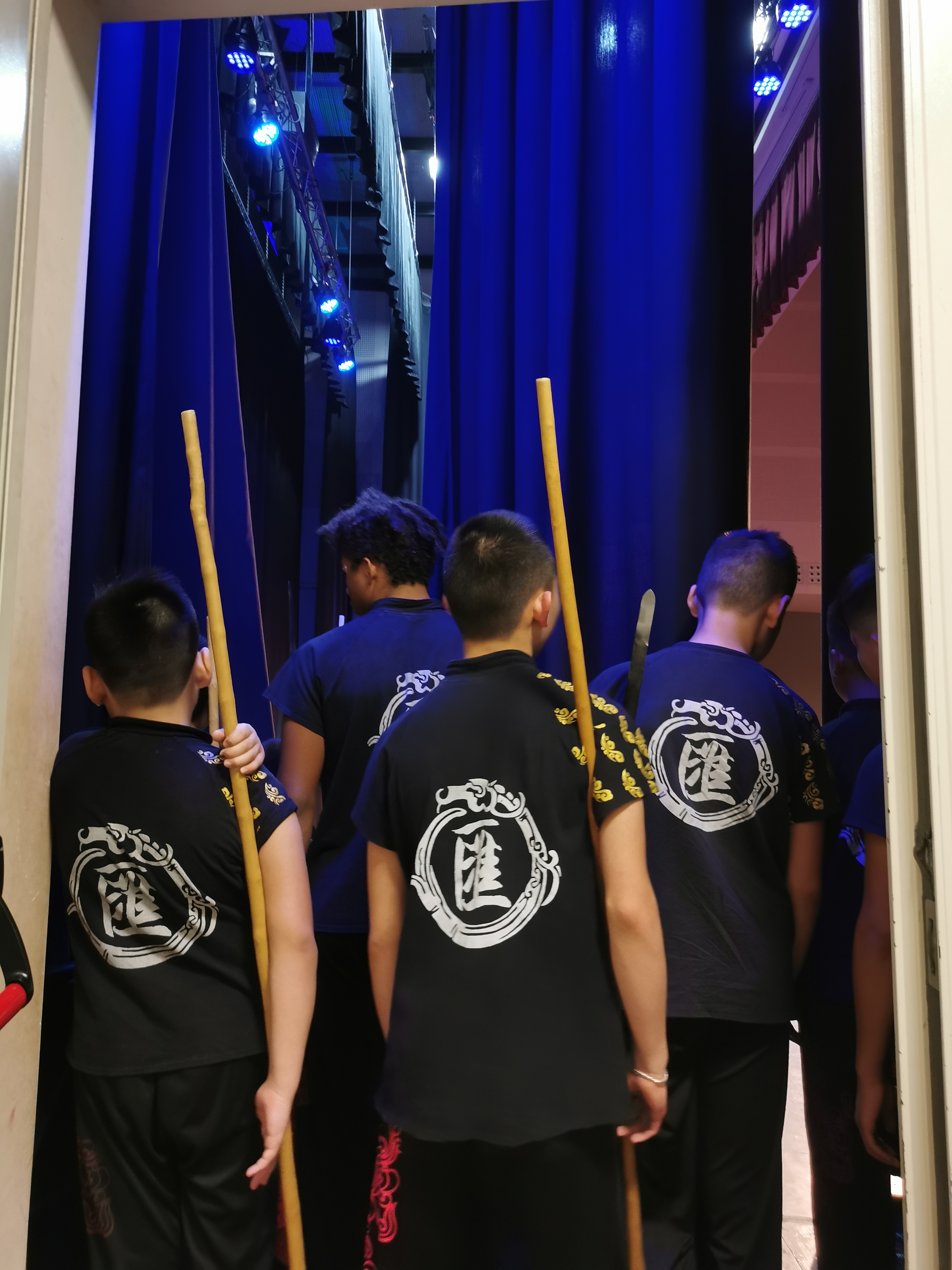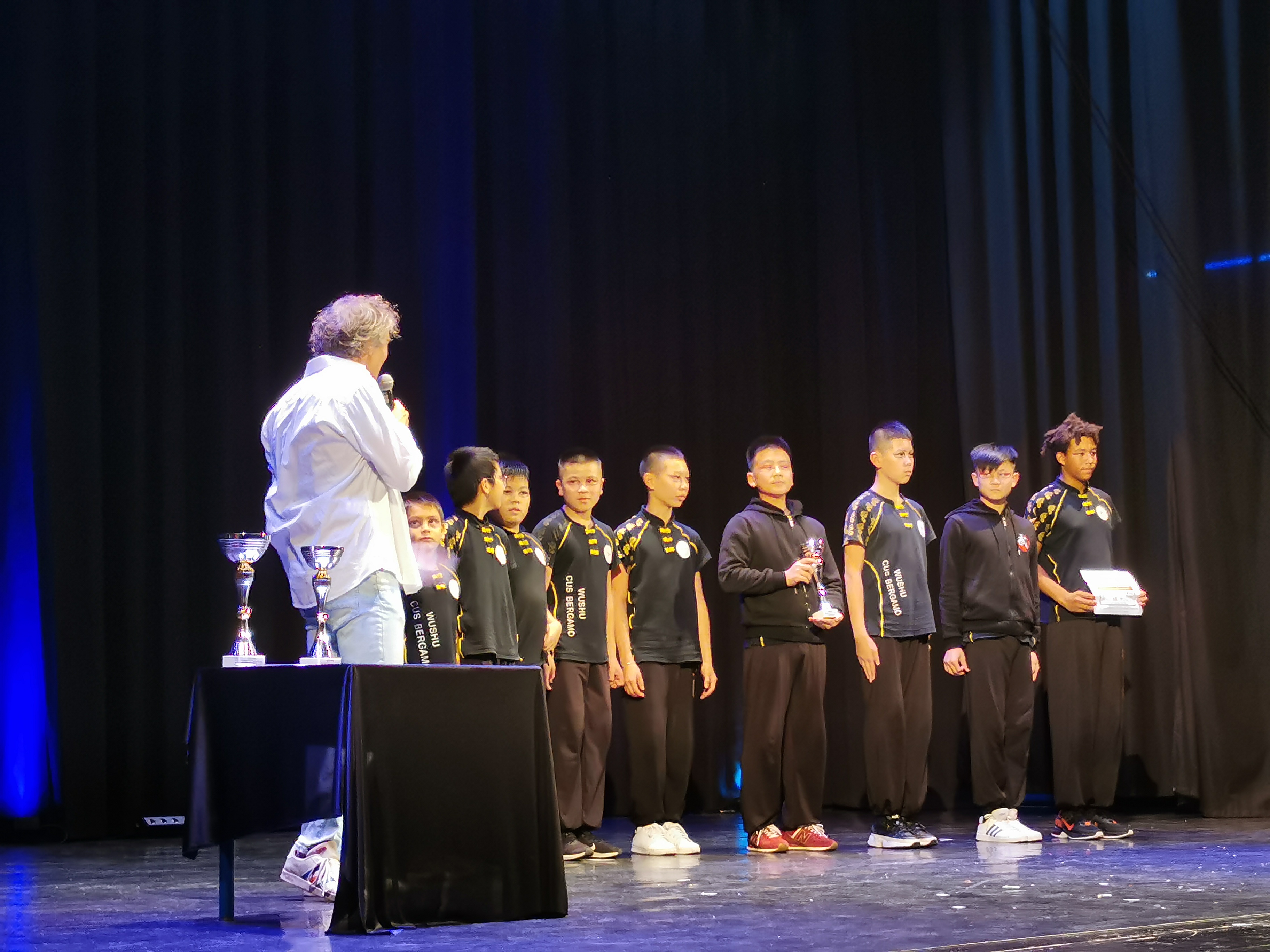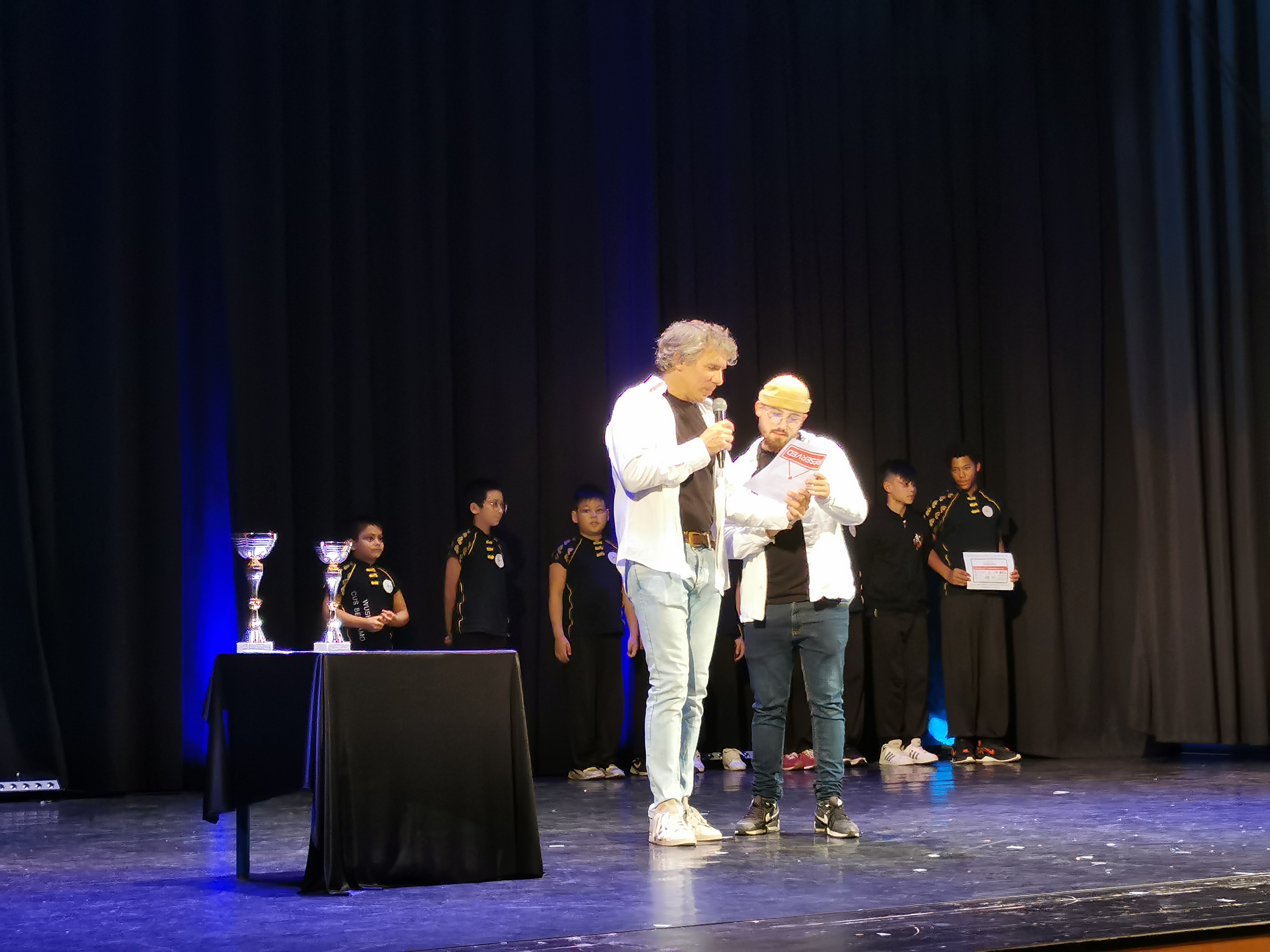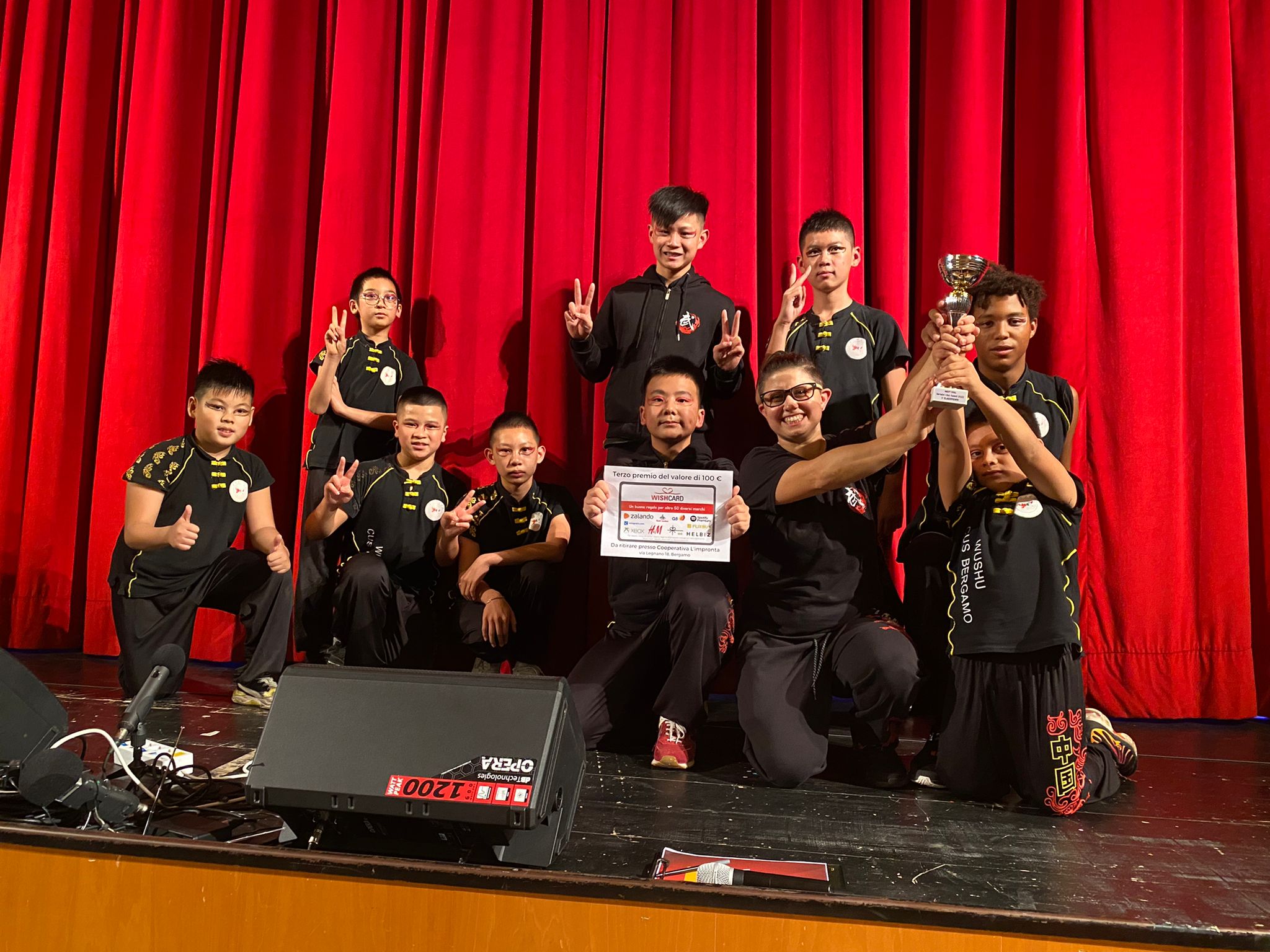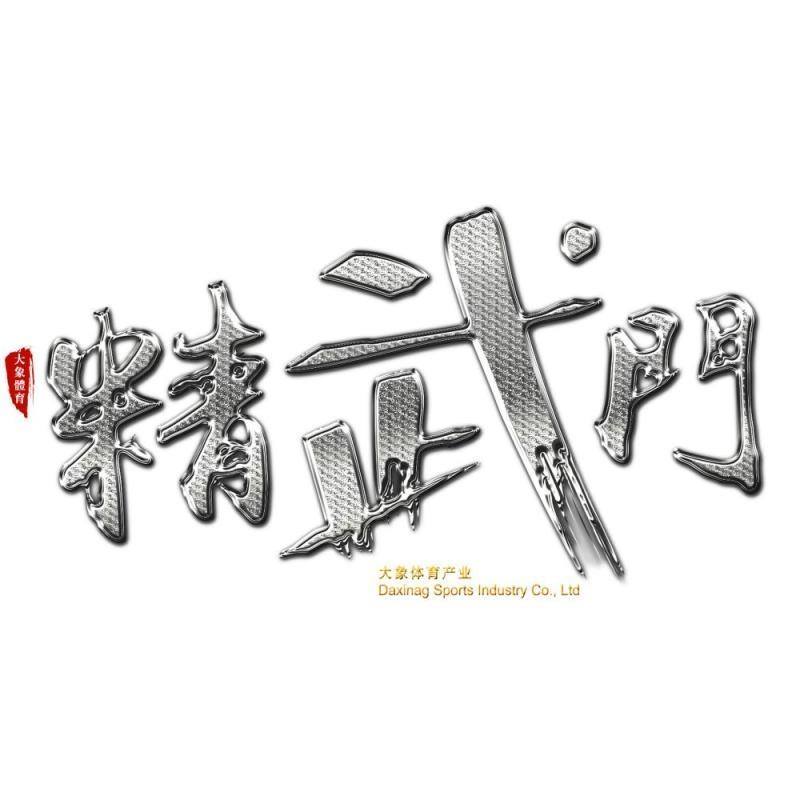No Medal for You: Why (I Feel) Olympic Wushu is No Longer worth It
“‘I’m very sad because I have the hope that Wushu will get into the Olympics so the art can flourish more, get more sponsorship, more people to help, and make the industry a little bit better…’” — Christopher Pei, Kung Fu Magazine “Wushu Out of the Olympics… Again”
On August 1st, 2013 (the time of this writing), I came across the September/October 2013 Kung Fu Magazine issue, with my head coach on the cover, charismatically flourishing a rope dart. Right away, this caught my interest. And right next to his face was the cover article’s respective topic; “Wushu Rejected by the Olympics Again.” Now, this was really interesting. Not only did the article paint a vivid picture of my coach’s life story, but also about his feelings on the theoretic of Olympic Wushu.
The first notion of Olympic Wushu I had ever heard of was ten years ago, at a rank test at my Wushu school. Christopher Pei, the very same head coach, and head judge of our testing process, declared, “In 2008, Wushu will become an Olympic sport.” Of course, being a kid, I was very excited to hear that prospect. That was in 2003. It’s in the latter half 2013 today, and the idea has unfortunately begun to lose its appeal.
For those of you who are not aware of the brief history of this issue, here’s a quick history lesson: when 2008 came around, China was set to host the Summer Olympics. The opportunity to introduce Wushu to the worldwide public was fresh. The IWuF (International Wushu Federation) placed a bid to the IOC (International Olympic Committee) to include Wushu as an Olympic sport. The appeal was rejected. Reasons cited were “contractual”, which stated that no international or national sports competition is allowed in the Olympic host city around the time of the Olympics. But, in what seems to be a pacifier for the Wushu community, the IOC relaxed their regulations to allow the organization of a formal Wushu competition alongside the Olympics, Wushu Tournament Beijing 2008, complete with facility and medals. But still, no Olympic label for sport Wushu. Come 2012, a second appeal was made, and Wushu was considered in a list of other possible candidates, which included Karate. At the time, sport wrestling was announced to be dropped as an official Olympic sport, despite being such a traditional sport with such a long history (a decision I actually happen to disagree with, and fortunately it did not come to light). Once again, Wushu did not make it to the final cut of sports in the 2020 Olympics. At this point, golf looked to be a better candidate of becoming Olympic. And that’s not a joke.
The more time went by, the more I thought about this, and the more I slowly realized something; of the minority of us that know of and practice Wushu, the majority was pushing for Olympic status, and holding onto a hopeless dream. A lot of time has passed, and I am, quite literally, in the minority of minorities. I can safely say that I have become disillusioned with the pursuit of Olympic Wushu, and against the thread of many friends, training partners, and great masters, I am going to respectfully disagree with all of them, with what I feel is a legitimate, three-point argument as to why Olympic Wushu is just not worth it anymore.
1. Because they won’t do a good job of representing Wushu.

By “they”, I am referring to all formal Wushu organizations in general that follow hereafter, as well as the IOC. Being the official governing body of modern Wushu as a competitive sport, and its current state, the IWuF bears a great responsibility in promoting it, as do the many national and other regional Wushu organizations. Every country and continent’s situation regarding Wushu’s success is extremely varied, but all of them depend on the official organizational body of each region. For every one of them, lack of exposure to the public is an issue to tackle, and promotion should the big goal to achieve. Thus far, they have all failed to do anything of the sort. The only thing resembling any executive action at all is the pointless, albeit persistent, bids for an Olympic standing, which have thus far been flatly rejected. Wushu doesn’t even have a status as a performance sport.
But the idea of going Olympic had taken its toll on modern Wushu even before a formal bid was placed. In an effort to make the scoring system for taolu (套路; tàolù, forms) events more comprehensive to judge and easier to grade, an emphasis on nandu (难度; nándù, difficulty movements), was added purely for sport purposes. As a result, more of emphasis on traditional martial substance and actual forms work that was previously present in Wushu was heavily watered down. More recently, the CWA (Chinese Wushu Association) has implemented the practice of compulsory movement combinations (规定动作组合;guīdìngdòngzuòzǔhé), which contain a clear emphasis on actual martial arts basics and fundamentals, into the taolu events of their own national competitions. While these changes are not without their own flaws, there is a consensus that such changes are moving in the right direction. However, the profile of modern Wushu is unfortunately not much better, and the IWuF, along with the rest of these organizations, should naturally be held responsible. Oh sure, they’ve organized competitions, but as far as actually promoting Wushu, they’ve completely failed on all levels, because there are no tangible results. This is purely because there was no tangible plan of promotion, not even in one single organizational body.
The fact is nobody in the Wushu community really knows exactly how modern Wushu can be fully marketed and represented to the public, which is problem number one. In this case, an Olympic bid shouldn’t even be anywhere near the top of the IWuF’s list of priorities, or that of any organization’s for that matter. Instead, the first item on that list should be to better spread Wushu throughout the public eye as much as possible. Whereas everybody knows the word “kungfu”, and its representation of the traditional Chinese martial arts, very few people actually know about modern Wushu. The only point of relation anyone has offered to shed some light on Wushu is a name — Jet Li, who ironically hasn’t been seriously involved with the sport since his retirement as an athlete, which admittedly, is pretty sad. So the real issue is how people can get to see Wushu, and know what exactly it is.
In order to better promote Wushu, rather than simply support its competitive life, more time and effort needs to be spent on marketing and advertising to the public about performances and competition events. For example, the development of more open Wushu events and programs, with strong marketing and advertising campaigns, as well as within living distance and access to public areas, rather than simply restricted to Chinese schools and professional academies, can help to raise awareness of Wushu. Examples include Wu Bin’s past involvement in the nation-wide Young Champions program, or even Professor Zhu Ruiqi’s suggestion on a change of emphasis, away from competitive Wushu, with his focus on Sanshou being more with commercial and health emphases. On the Young Champions program, Wu Bin observes, “‘The good thing about Young Champions is that it’s like a chain store, so wushu can spread extremely fast.’” But even national and international recognition is not enough. Like Taekwondo and Karate, awareness needs to be common knowledge, which starts at the local level. The situation has only slightly improved in recent years. More and more people are able to distinguish what Wushu is, but that’s not saying much.
And this does not even touch the topic of how Wushu will be represented. The beginning of Mastering WUSHU’s article “Olympic Wushu – Dream or True Possibility?” opens with “The discussion about Wushu trying to get into the Olympics has been going on for quite some time, with masters and practitioners unable to agree if what they’re doing is a sport, a martial art, a performance – or all three.” An argument can be made for all three. However, the separate arguments of all three will inevitably factor into Wushu’s reception when given the spotlight.
Modern Wushu, as it is completely marketed as a sport, is separated into two disciplines; taolu, and Sanda (散打; sàndǎ, free fighting), making it complete as a form of competitive martial arts, just as sport Taekwondo is divided into poomsae (품새; forms) and gyeorugi (겨루기; sparring), and sport Karate is with kata (形; forms) and kumite (组手; sparring, literally meeting hands). Following the initial announcement that Beijing would host the 2008 Summer Olympics, a Kung Fu Magazine article “China Gets the Gold!” speculates, “If Wushu gets entered, it will probably focus on Wushu Taolu or forms competition. What remains in question is Wushu Sanda, or free sparring. In contrast, when Taekwondo became Olympic, only free sparring was entered. Taekwondo Poomse (forms) were not. If China does submit Wushu, will Sanda also be submitted under the Wushu umbrella?” Should Olympic Wushu follow the template of Wushu Tournament Beijing 2008, than modern Wushu should be adequately represented. Any other result will simply not satisfy the need to make Wushu a complete form of modern Chinese martial arts.
But even then, with the vast Wulin (武林; wǔlín, martial arts circles, literally martial forest) that traditional Chinese martial arts has to offer, modern Wushu will fall short in the demand to completely represent Chinese martial arts. Zhao Changjun, one of the great Wushu legends, yet a critical observer of the sport and adamant supporter of the traditional martial arts, looks at the problem that Wushu faces in such publicity. “‘Why did tae kwon do get into the Olympics? All the leg fighting methods are there, so it’s complete. Boxing is everything with the fists. To get wushu into the Olympics is a difficult test. What can represent Chinese martial arts?’” Whether supporters like it or not, modern Wushu bears the pressure, and sometimes unnecessary responsibility, of representing all Chinese martial arts, though it is clear that modern Wushu was not designed for such a purpose. Zhao Changjun adamantly concludes that “‘Competitive martial arts can never represent the whole picture of Chinese martial arts.’” Modern Wushu has always been criticized by traditional Chinese martial artists as being too simplified in its standardization, too commercialized purely for sport purposes, and for separating the skill sets of forms work and sparring into choice specializations for athletes. These are inevitable flaws that cannot be solved in the competition scene. As it is, modern Wushu only grades the competition items it has been standardized with, which, purely for competition’s sake, is ultimately for the best.
Of course, all of this wouldn’t be as bad if the IWuF, or anybody else, actually had a plan for promoting Wushu. They don’t. They never did, and probably never will in the near future. So far, all that’s been seen and heard is the cry that goes, “Olympic, Olympic, Olympic.” There is no strategy being seen here, and if there is, nobody from any level of the Wushu community, from local to national bodies, can see it. In what can be interpreted as a form of cynical consolation, Christopher Pei reflects, “‘It didn’t get in maybe because the organization didn’t work as well…Whatever they are doing now, it didn’t work. It didn’t get in…You either change the people or you have to change the path. Hopefully that someone will come up with the right idea and say, ‘we need to do this.’’” Granted, when the IWuF, or someone in an actual position to make a difference, actually does come up with a plan, it will probably suck, but at least they’ll have a plan. That’s the first step in raising the awareness and profile of Wushu.
2. Because even if Wushu becomes Olympic, what then?

Whereas my first point touched on the plan (or rather, lack thereof) for trying to introduce and represent Wushu in the first place, the second point is concerned solely with the theory of what comes after the ordainment of Olympic Wushu. Let’s entertain the possibility that Wushu is finally Olympic. What comes after that? Who would support it? Who would sponsor it? Who would endorse it? Who would watch it? And most importantly, who would care? Again, the root of the issue goes back to the first point. How can you be so concerned with the relevance of the Olympic label, when it might not mean anything for the better promotion and name of the sport itself?
The few people that support modern Wushu assume that if it finally went Olympic, it would finally get the spotlight it needed. Realistically, this may not the case. Even the late Grandmaster Ma Xianda, the famous authority on traditional Chinese martial arts, and an objective critic of modern Wushu, pointed out, “Even if Wushu Taolu went into the Olympics, it is not necessarily a given that people will want to watch it. Not every category of the Olympics has an audience.” Trying to reach the masses is not as simple as getting the word “Olympic” attached to the name; it’s a fancy embroidering, but it doesn’t guarantee better development or representation. Not all Olympic events are televised, or even have good coverage at all. How guaranteed is it that Wushu will be getting the full benefits of this deal? The answer is simple: it’s not at all. When the Wushu Tournament Beijing 2008 was held, it had extremely limited coverage and exposure to the public. CCTV2 (a secondary channel of China Central Television) broadcasted only day two of the competition events. Broadcasting companies, such as the NBC, reportedly owns such footage of the event, but hasn’t even bothered to officially release it. The only strong medium of media exposure of this event, or any Wushu event at all, is on YouTube. Even then, it still does not match the exposure of other sports and trending videos being watched online. Despite the fact that many Asian countries promote and broadcast sport Wushu and its higher profile competitions, such as the All China Games and Asian Games, not many people take the time to even try to watch it.
Sadly, even in China, Wushu isn’t as popular as it once was. During its inception as a Chinese national sport, and decades afterwards, Wushu was something of a spectacle to watch, with champions such as Zhao Changjun and Yuan Wenqing being nothing short of local celebrities. As a spectator sport today, Wushu can barely be qualified as a popular competition item. Even Zhao Changjun states, “‘No one goes to watch. They are all doing the same thing, so it’s not interesting. It’s because they had to go the sports way to bid for the Olympics.’” The only people that are actively engaged in watching Wushu are other people that practice Wushu. Zhu Ruiqi contests that Wushu’s problem is of a commercial nature at the fault of organizations, saying “They often approach it with a ‘doing the job’ kind of attitude and the event is staged without any market research.”
Whatever happened to the various pledges of not only the Chinese government, but that of many national organizations, to raise the profile of Wushu worldwide? Promises have been made, but not acknowledged, much less kept. One or two high profile performance events aren’t enough. Once again, the problem falls to a plan of action, namely of much more expansive marketing and promotion.
3. Because people ultimately want it for the wrong reasons.

In all honesty, the main reason why certain parties want Wushu to become Olympic, is for it to be successful. So to me, the question no longer becomes, “Why/how can Wushu be Olympic?”, but rather, “How can Wushu be more successful?” As established before, success via Olympics is not guaranteed.
In the end, many of the concerned parties not only include practitioners and athletes of modern Wushu, but also those in administrative and head positions in Wushu organizational bodies. It’s important to acknowledge that many of these people in high places are not only martial artists, but also businessmen. Many of them may be in a position to help make a difference for Wushu, but are actually trying to help promote themselves, or their own group, as much as possible, which results in the politics and corruption already inherent in the sport. From a business standpoint, many people will use this “success” to further cement themselves in better positions, which can allow them better opportunities and privileges. Understandably, many people want to be professionally successful, in order to make a living, which is undeniably difficult, especially in the martial arts industry. Unfortunately, the desire for “success” has been twisted by these individuals to the point that it won’t matter for the big picture of Wushu. An example is the competitive Sanshou circuit in the US. In what was seen as a lazy and idiotic move, the USAWKF (United States of America Wushu-Kungfu Federation) handed the organization of national competitive Sanshou to one particular individual (for the sake of preventing the spread of negativity, at least on this writer’s part, this individual’s name will not be mentioned in this write-up. HOWEVER, this issue is well-known within the US Sanshou community, and can easily be researched online), who has become notorious in the Chinese martial arts community of the United States, for injecting politics into the US Sanshou Team Trials under his management, allowing his own students to be selected over many other great veteran athletes and potential rising contenders. Many observers, including the Big Six competitors of US Sanshou and their coaches, were displeased with the results. While the situation has improved, with US Sanshou once again under new management, there are unfortunately not many athletes competing under US Sanshou anymore, and active competition for the sport is practically considered dead, as the majority of competitors, including the Big Six, have left to pursue other venues of success, including MMA (mixed martial arts) and Muay Thai championships. Many observers, including the Big Six competitors of US Sanshou and their coaches, were displeased with the results. While the situation has improved, with US Sanshou once again under new management, politics still, and will always, exist in sport. Who wants to watch an event where one specific athlete or team always wins? Will it even be worth it for anybody else? Unfortunately, this is a core human issue, not simply a sport one, and there really isn’t a substantial solution that can address this.
For me, even the word “success” is distasteful for the sake of Wushu, but it seems to satisfy those who want to promote it (as well as those who want to promote themselves). Taekwondo is successful for sure as a form of physical activity, and arguably as a competitive sport, as is Karate. But are they respected as martial arts? This is another issue, but it’s the deeper one that underlies the profile of all forms of martial arts, including Wushu. Without respect for the art, there is no point to success for the sport. Zhao Changjun hopes for the same from Wushu’s traditional roots. “‘I hope traditional Chinese martial arts becomes like sumo in Japan. Sumo isn’t trying to push to be Olympic. There is a special respect for sumo. Traditional Chinese martial arts still have so much to offer.’” He even seems to admit that as it is, modern Wushu fails as both a sport, and a modern martial arts system. “‘It’s because when wushu tried to go Olympic, somehow they lost the character of what wushu is. And that’s where the failure is.’”
Colvin Wang, four-time US Wushu Team member, and multiple times World Wushu Championships medalist, says it best when he argues, “Wushu doesn’t need to be in the Olympics for it to be a worthwhile sport…wushu is still a great sport even without Olympic standing.” Ma Xianda also cites other sports that are successful outside of the Olympic honor. “Thai boxing cannot get into the Olympics, but people still watch it. Olympic boxing and basketball does not have as big a following as pro boxing and pro basketball.” Boxing is a very good example of a historically successful sport outside of the Olympics. In fact, there is strong criticism among general boxing fans and critics, about Olympic boxing methods of judging politics, and rules. At the end of the day, boxing is still appreciated as a sport all its own, without the Olympic title. Wushu should have the same potential as well.
So if Wushu’s future should not rely on the Olympics, what should it rely on? Ideally, Wushu should rely on good old Wushu. Once again, the solution lies not with an Olympic title, but instead with a better plan to introduce and share Wushu with the endearing public. But how can the Wushu community, in the words of Wu Bin, “‘make wushu more attractive, so that spectators can enjoy, appreciate, and understand the sport?’”
Wu Bin himself believes that in order to be successful as a sport, it must look to other martial arts sports. “‘The karate and tae kwon do community were able to make these sports easy to learn, teach, and understand. Students nationwide also have a passion for it. Wushu must learn from these sports.’” Say what you want about Taekwondo, but you have to give Jhoon Rhee credit. As the Father of American Taekwondo, he did his job well in promoting his art, by doing all of the above. What Wu Bin says is true. Following the focus of these examples, especially with such a conveniently designed item such as modern Wushu, can result in the better marketing and commercialization desired. But is simply watering down Wushu even more than it already is from traditional Chinese martial arts, the answer? In order to make Wushu not only more marketable, but also have a unique appeal to audiences, we also need to turn inwards, and look at what Wushu itself has to offer, and that means looking back on its traditional roots.
Wushu has other interesting aspects to it, aspects which are not purely competitive and performance based, that are not fully shared or known to everybody, not even to most modern Wushu athletes themselves. Christopher Pei, who has trained in both modern Wushu and traditional Chinese martial arts, such as Tien Shan Pai (天山派;Tiānshānpài, Celestial Mountain School) and traditional Chen and Yang Style Taijiquan, supports the existence of a greater depth in Wushu. “‘…modern Wushu didn’t come out of nowhere. It came out of traditional martial arts. It makes a difference.’” With the previous marketing claim that Wushu “has roots in traditional Chinese culture”, perhaps it’s time to finally make good on that claim.
While I maintain that modern Wushu is a separate entity from traditional Chinese martial arts, I still feel that since it comes out of traditional martial arts, it should retain at least some of the same depth of its traditional counterpart, albeit a modern interpretation of what it was born from, and thus contain some actual cultural relevance and content. In going back to Wushu’s roots, which is its connection and derivation from traditional Chinese martial arts, we can find more in-depth and traditional knowledge, such as martial applications and fighting ideas that can relate to Sanda, and of course, greater philosophical ideas and connotations that can appeal to a deeper, more critical level of practice for people. This emphasis can not only bring about a better martial arts foundation out of practicing and learning Wushu, but it can also promote better understanding of Chinese martial arts in general, in a venue outside the competitive and performance stage, and maybe even bring a new found respect for the modern martial art, not just the simple sport.

